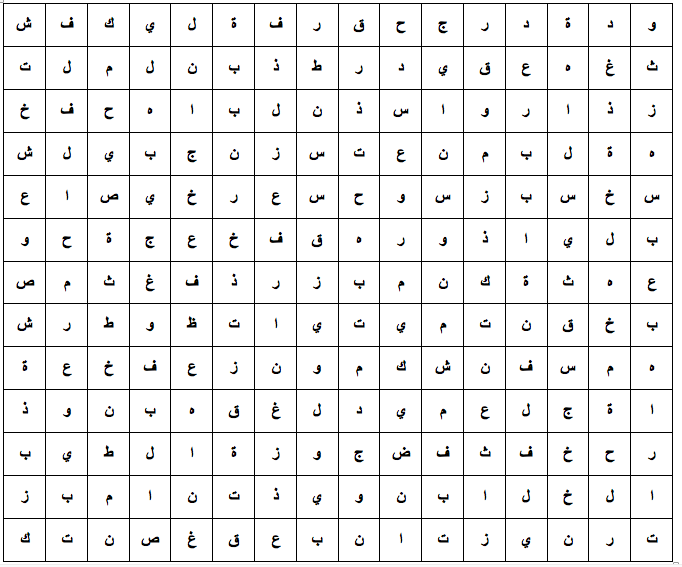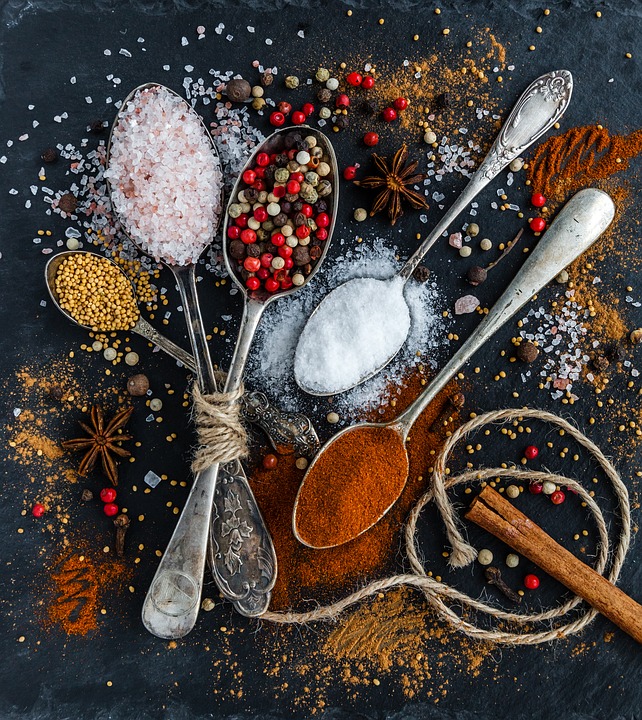The 10 Most Used Spices in Arabic Cuisine Posted by jesa on Apr 30, 2017 in Arabic Language, Culture
Marhaba! Over the years, I have shared so many recipes that my wife and I use to prepare Middle Eastern, especially Levantine, dishes and appetizers. As you know, we have learned most of these recipes from our mothers. Given our common passion for Arabic food and cuisine, today, I have decided to dedicate this post to the 10 most commonly used spices in the Arab world. Of course, you will more than these 10 spices, but I am providing the most essential spices in any kitchen that seeks to prepare and make tasty Arabic dishes.
Like earlier posts, I am sharing these words in a fun Arabic crossword puzzle. As always, I have transliterated all the words so that you can pronounce them accurately. Stay tuned for the answers soon.
Allspice – سبع بهارات
Transliteration: Sabi‘ Biharat
Aniseed – يانسون
Transliteration: Yansun
Cardamon – هال
Transliteration: Hal
Cinnamon – قرفة
Transliteration: Qirfa
Cumin – كمون
Transliteration: Kammun
Ginger – زنجبيل
Transliteration: Zanjabil
Nutmeg — جوزة الطيب
Transliteration: Jawzat al-Tib
Paprika — فلفل أحمر
Transliteration: Fulful Ahmar
Pepper – فلفل
Transliteration: Fulful
Saffron – زعفران
Transliteration: Za‘faran

For now take care and stay tuned for the answers soon!
Happy Learning!
Have a nice day!!
نهاركم سعيد

Build vocabulary, practice pronunciation, and more with Transparent Language Online. Available anytime, anywhere, on any device.




